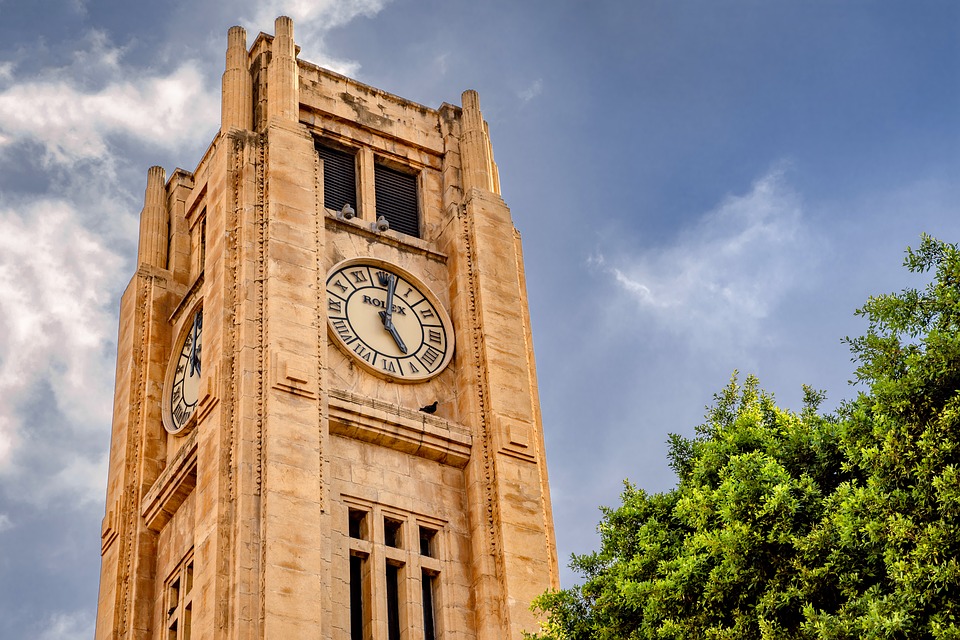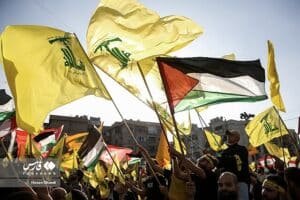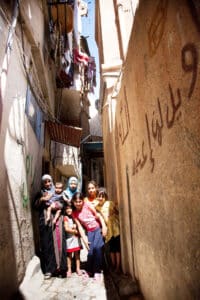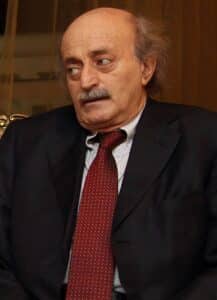The United States, Israel and Saudi Arabia say yes, Germany, France and most other EU member states say no. The move of the United Kingdom to add the political wing of Lebanon’s armed group Hezbollah to the list of terrorist organisations has sparked the debate about the role of the Shi’ite Muslim Islamist movement in society and how to approach it.
Britain’s move to list all elements of Hezbollah as a terrorist organisation is most likely the result of “pressure coming from Washington,” according Andreas Krieg, a lecturer at King’s College London. UK Home Secretary Sajid Javid explained the move by stating that “Hezbollah is continuing in its attempts to destabilise the fragile situation in the Middle East – and we are now longer able to distinguish between their already banned military wing and the political party.” The military wing of the Iran-backed movement was already unanimously banned by the EU in 2013 and since then several Gulf states, the U.S. and Israel have lobbied to ban Hezbollah in its entirety. Former Israeli Ambassador to the UN, Ron Prosper, argued that “viewing Hezbollah primarily as a political or social services organisation because it provides certain of those functions, would be calling al-Qaeda an urban-planning organisation because of its desire to level tall buildings.”
Hezbollah’s response
As a response, Hezbollah has called its supporters to donate money in order to compensate for the increasing financial sanctions. Hezbollah leaders Sayyed Nasrallah stated that “their actions will not be able to make us poor, hungry or isolated,” adding that donations were needed to support the group’s activities. Nasrallah expects other countries may follow the UK: “The sanctions and the terror lists are a form of war (…) we should deal with them as if they are a war.” Hezbollah does not acknowledge having separate political and military wings.
Dialogue instead of conflict
In an interview with German weekly Der Spiegel, Minister of State Niels Annen stated that Hezbollah remains a relevant factor in Lebanese society and that its military wing was already added to the list of terrorist organisations in 2013. Responding to the criticism Germany is doing too little to combat Iran’s influence in the region, Annen said Berlin’s foreign policy remains focused on political solutions. Also France will not follow the move of the U.K., as announced by President Emmanuel Macron. “France and no other power has the right to decide what Lebanese political parties are good and which are not. This is up to the Lebanese people,” he said. EU foreign policy chief Federica Mogherini stated that the British position on Hezbollah is its own sovereign decision and it will not affect the EU’s stance on the party. Also Krieg argued that the British decision could prove counterproductive, since it would leave officials with “no wiggle room to engage” with the Hezbollah. He argues the organization is deeply embedded in the social fabric of Lebanon.
Growing influence
Hezbollah, founded in 1982 by Iranian Revolutionary Guards, has indeed a strong position is the country. It controls three of 30 ministries in the Lebanese government – the largest number ever. Also including the Health Ministry, which has the fourth-largest budget in the state. Hezbollah and allies like the Free Patriotic Movement of president Aoun won a majority of seats in last parliamentary elections (May ’18), a major blow to parties that oppose Hezbollah’s possession of weapons like the Lebanese Forces, with close ties to US –allied Gulf states.
Hezbollah has extended progressively its hegemony over the Lebanese system. Since 2008, the organization and its Shi’ite ally Amal have secured a veto power to any government decision, which introduced a constitutional precedent by putting an end to the majority rule replaced by consensual rule, requiring unanimous support to cabinet decisions. More importantly, In defiance of U.N. resolutions and international agreements demanding its disarmament, Hezbollah has used its military strength, political power, and grassroots popularity to integrate itself into Lebanese society. Hezbollah has also created its own educational and social institutions that run parallel to the Lebanese state. As a result of these efforts, Hezbollah today wields significant influence across Lebanon’s various sectors.
Reuters I, Reuters II, Al Jazeera, Asharq al-Awsat, Atlantic Council, Parlementaire Monitor, Image MaxPixel



